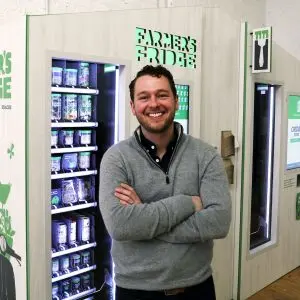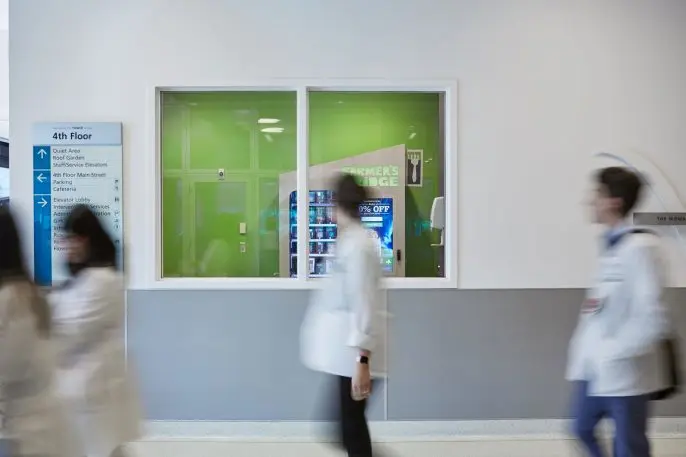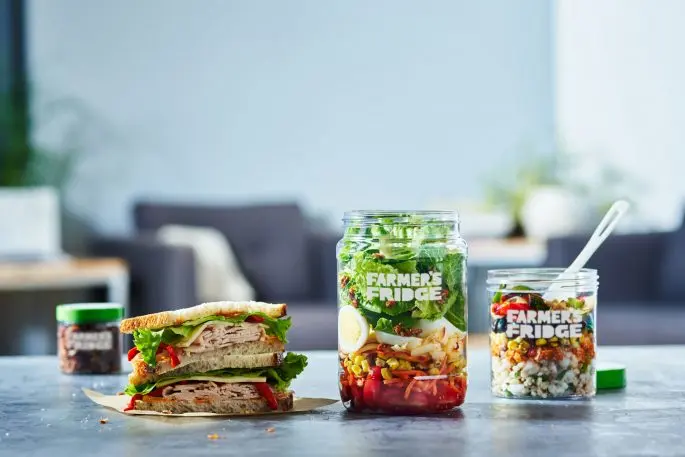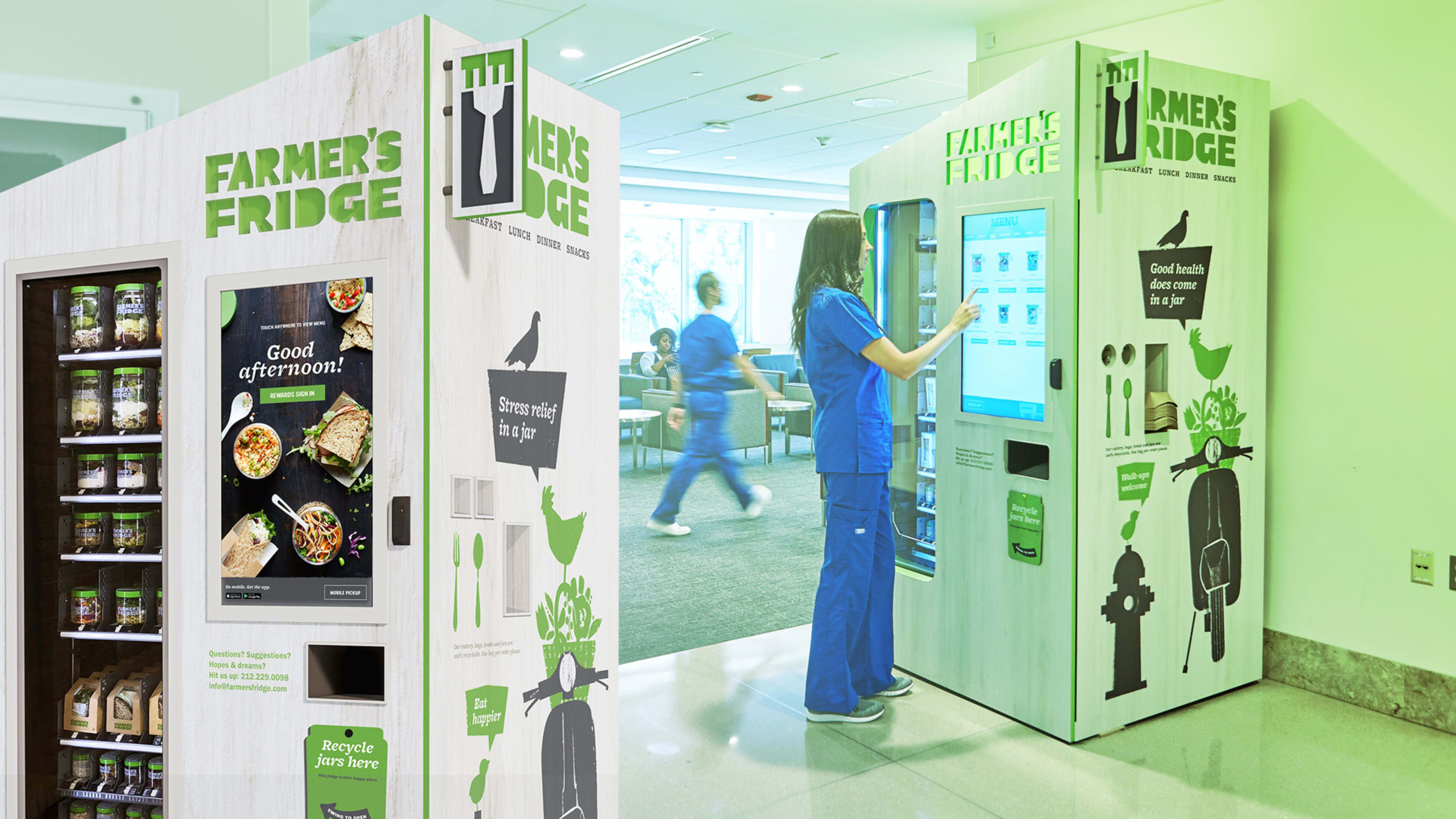For Fast Company’s Restaurant Diaries, we’re asking chefs, restaurateurs, and food-world employees to take readers inside their businesses and lives at this critical moment for the industry.
Luke Saunders’s Chicago-based company, Farmer’s Fridge, makes vending machines that sell healthy food, such as salads and sandwiches, priced between $5 and $8. The machines, which are stocked with fresh food almost every day, are installed in areas with high foot traffic, including office buildings, college campuses, and hospitals. As coronavirus spread through the United States in March, the company saw business plummet and had to quickly revise its food distribution strategy. Saunders tells us how he changed his business model to prevent layoffs and better serve those on the front lines.
Last month, over the span of 48 hours—as universities vacated and office buildings emptied in Chicago and New York City, our two biggest markets—some three-quarters of our more than 400 fridges no longer had people nearby to purchase food. Sales vanished. Revenue nosedived.

Board members and investors started calling me daily to tell me to move quickly to minimize our losses. I understood their concerns. But my top priority was to retain my workforce, which would allow me to be there for our customers and benefit shareholders in the long run. I knew both of those things were critical to delivering long-term value for our investors, regardless of how the next few months play out. In order to continue to employ the nearly 300 people on our team, and be there for those customers that need us more than ever, I needed to find a way to help compensate for lost sales.
In the end, I decided to keep moving forward, safely and responsibly. Though our fridges were primarily located in office buildings, more than 25% of them were in hospitals. I saw an opportunity with our hospital partners to keep generating revenue by feeding the people on the front lines. At a time when many hospital cafeterias are closing to prevent the spread of infection, contact-free food like Farmer’s Fridge provides a solution. Today, we’re only stocking our fridges in healthcare facilities, hospitals, and airports. And we’re moving quickly into new healthcare locations, which are eager to give their doctors and caregivers options beyond just bringing lunch from home.

When I launched the company in 2013, I saw Farmer’s Fridge mostly as a convenient option for people on the go. Until recently, our product was a luxury for hospital employees working the night shift when the cafeteria was closed. After reducing our meal prices by 25% in all hospital vending machines, we’re now more like a utility—the only food option for many medical workers working around the clock on the front lines. We’ve served more than 30,000 meals to hospital workers every week since the crisis began, and that number rises daily. We also donate all the meals that do not sell (in February alone, we donated 25,000 meals to food pantries) and are starting to channel donations to the front lines.

I’m grateful that we have been able to pivot. Although it isn’t likely to make up for the lost revenue in our other channels, knowing that we are feeding those who fight for our health and keeping our team employed makes all of these decisions worth it.
More from Fast Company’s Restaurant Diaries:
- ‘Restaurants are the soul of neighborhoods’: How Marcus Samuelsson is keeping Newark’s struggling restaurants afloat
- Restaurateur Nick Kokonas has a plan to save restaurants—and it doesn’t involve Uber Eats.
- Chef Kwame Onwuachi of Washington, D.C.’s Kith/Kin on his decision to close his restaurant and lay off his employees.
- ‘I’m at risk’: What it’s like to work at McDonald’s during the pandemic.
- How Panda Express is fighting COVID-19 racism.
- Chef Daniel Humm of Eleven Madison Park isn’t sure fine dining can survive the pandemic.
Recognize your brand’s excellence by applying to this year’s Brands That Matter Awards before the early-rate deadline, May 3.
